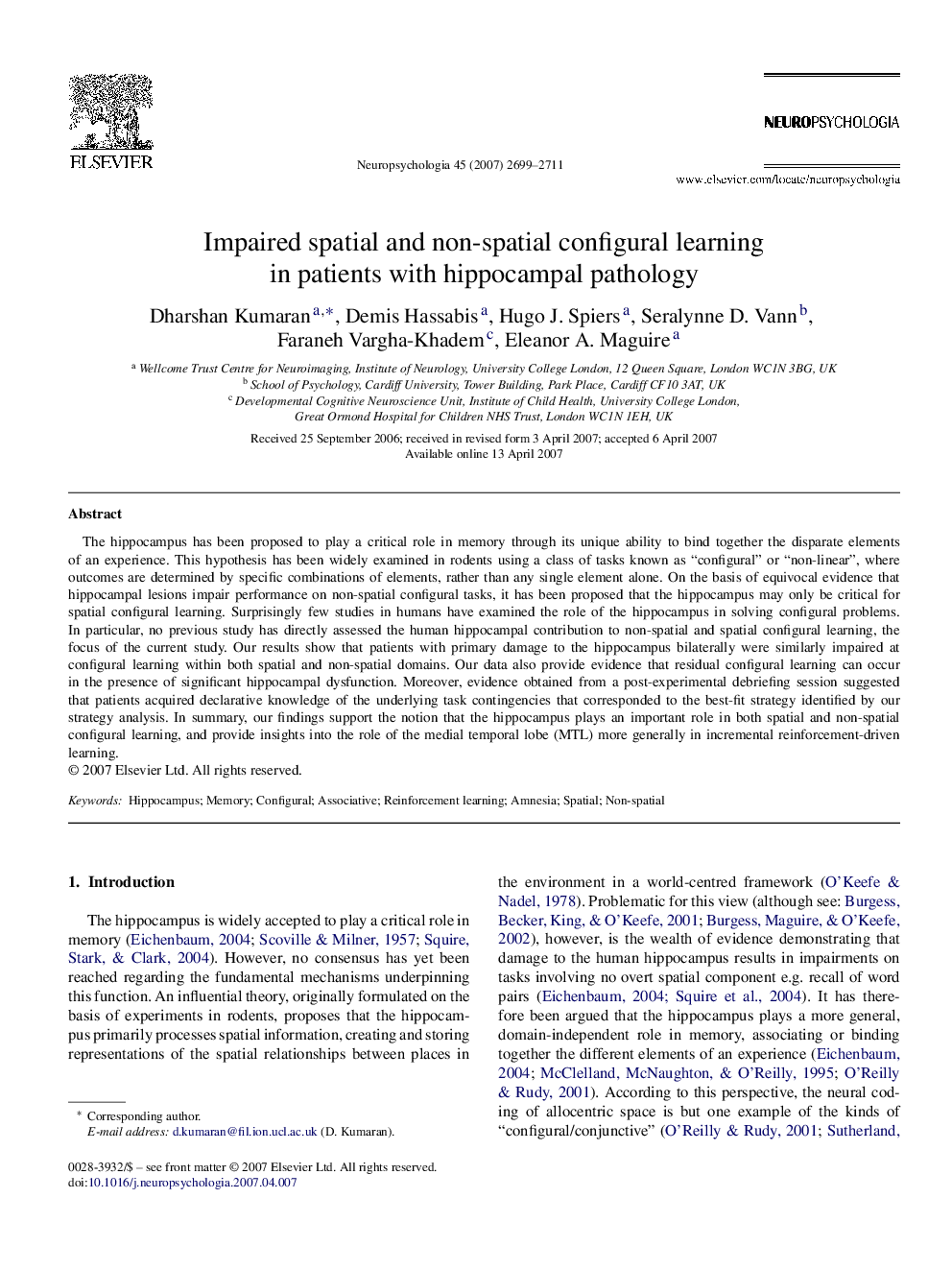| Article ID | Journal | Published Year | Pages | File Type |
|---|---|---|---|---|
| 10466771 | Neuropsychologia | 2007 | 13 Pages |
Abstract
The hippocampus has been proposed to play a critical role in memory through its unique ability to bind together the disparate elements of an experience. This hypothesis has been widely examined in rodents using a class of tasks known as “configural” or “non-linear”, where outcomes are determined by specific combinations of elements, rather than any single element alone. On the basis of equivocal evidence that hippocampal lesions impair performance on non-spatial configural tasks, it has been proposed that the hippocampus may only be critical for spatial configural learning. Surprisingly few studies in humans have examined the role of the hippocampus in solving configural problems. In particular, no previous study has directly assessed the human hippocampal contribution to non-spatial and spatial configural learning, the focus of the current study. Our results show that patients with primary damage to the hippocampus bilaterally were similarly impaired at configural learning within both spatial and non-spatial domains. Our data also provide evidence that residual configural learning can occur in the presence of significant hippocampal dysfunction. Moreover, evidence obtained from a post-experimental debriefing session suggested that patients acquired declarative knowledge of the underlying task contingencies that corresponded to the best-fit strategy identified by our strategy analysis. In summary, our findings support the notion that the hippocampus plays an important role in both spatial and non-spatial configural learning, and provide insights into the role of the medial temporal lobe (MTL) more generally in incremental reinforcement-driven learning.
Related Topics
Life Sciences
Neuroscience
Behavioral Neuroscience
Authors
Dharshan Kumaran, Demis Hassabis, Hugo J. Spiers, Seralynne D. Vann, Faraneh Vargha-Khadem, Eleanor A. Maguire,
